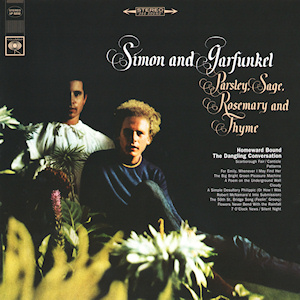Two years ago today, my good friend David Gentiles died. Losing someone that close brought new feelings for me. Yesterday marked nine weeks since we buried my father-in-law, who was the first of our parents to die. The grief of these days is new to me, but as I sat in church this morning, for reasons I don’t know, it struck me that what is new to me is not new.
What has been is what will be,
and what has been done is what will be done,
and there is nothing new under the sun.
Is there a thing of which it is said,
"See, this is new"?
It has been already in the ages before us.
(Ecclesiastes 1:9-10)
If we’re talking about grief, it shows up early on just east of Eden when Cain killed his brother Abel. Whatever else we might find in that story, grief is front and center. Death and loss show up in the first chapter and have kept repeating their performances. From the beginning, we have had to learn without all the pieces of our hearts intact. Grief entered the story early, along with jealousy and anger, but so did grace and hope and redemption. Even God’s love is not new. It is, in fact, the very raw material of all creation, the very stuff that brought the universe into existence, long before humans came on the scene convinced that we were the most essential element and nothing of great significance – or, certainly, more significance – than ourselves had ever happened.
One of my favorite readings of the Creation Story was new to me when I was in seminary, though it dated back to Irenaeus in the second century. He felt Adam and Eve were created as children and God’s admonition to stay away from the Tree was to give them time to grow up. Their sin in eating the fruit was in growing up too fast and thinking they knew better than God.
There is nothing new under the sun.
As I think about what is new to me, whatever the feeling or experience might be, I realize we go through life much like the explorers before us “discovering” things that were already there. The only people who thought Columbus discovered America were those back in Spain who thought they were the center of their very limited universe. To people already on the “undiscovered” land had known about it for centuries. As I discover new experiences, new ages, and new feelings I am stumbling on to well-trodden paths as though I am the first to walk there. What I am feeling is not new. I am, instead, connecting with a memory older than time itself, offering me the chance to feel humility, resonance, wonder, and hope alongside of my grief.
Yesterday I waited on a man at the computer store who had his daughter with him. He held her the whole time we were talking. She had jet black hair that framed her young face and black eyes that glistened they were so dark. She smiled every time I looked at her. “Your daughter is lovely,” I said. “How old is she?”
“She has a birthday tomorrow,” he replied. “She will be two.”
She was born the day David died. As one heart as big as the world left the planet, this young one found it all new. I wonder as I wander . . . .
This afternoon, I found myself singing
Joni Mitchell’s “The Circle Game,”which describes a boy growing up from a child to adulthood. The chorus sings:
and the seasons they go round and round
and the painted ponies go up and down
we're captive on the carousel of time
we can't return we can only look
behind from where we came
and go round and round and round
in the circle game
This morning, I finished my Advent stint as the prophet. After four seasons here in Durham, some of our children don’t know of Advent without me. As I turned to face them when I reached the back of the sanctuary as the congregation and I were finishing the song, I could see the three and four year olds singing, “Prepare ye the way of the Lord.” Circling round the seasons to do again what we have done before, to look for new eyes and new ears, to pray for Christ to be born again in our time and our culture is at the heart of what it means to be both hopeful and human. It’s not about looking for what is new but remembering what it true.
What is true is we were created with the capacity for wonder, with the ability to be caught by surprise by what has been there all along. We sat in the theater in High Point on Friday watching Scrooge be dragged about by the three ghosts until he came to the new realization that people mattered more than things. We all knew the old, old story, just as Dickens was writing down a tale that preceded him dressed in different clothes. And it was worth repeating.
I will keep repeating these days of loss and learn how much it matters to keep remembering and listening that I might discover more of who I am and who God is.
Here’s the good news : there is nothing new under the sun. Surprise!
Peace,
Milton











